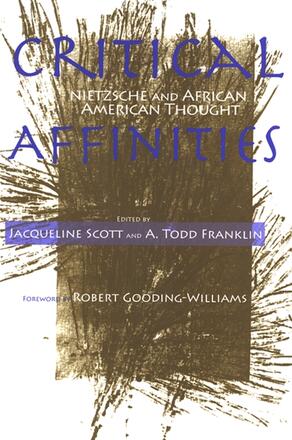
Critical Affinities
Nietzsche and African American Thought
Alternative formats available from:
Explores convergences between the ideas of Friedrich Nietzsche and African American thought.
Description
Critical Affinities is the first book to explore the multifaceted relationship between the philosophy of Friedrich Nietzsche and various dimensions of African American thought. Exploring the connections between these two unlikely interlocutors, the contributors focus on unmasking and understanding the root causes and racially inflected symptoms of various manifestations of cultural malaise. They contemplate the operative warrant for reconstituted conceptions of racial identity and recognize the existential and social recuperative potential of the will to power. In so doing, they simultaneously foster and exemplify a nuanced understanding of what both traditions regard as "the art of the cultural physician." The contributors connote daring scholarly attempts to explicate the ways in which clarifying the critical affinities between Nietzsche and various expressions of African American thought not only enriches our understanding of each, but also enhances our ability to realize the broader ends of advancing the prospects for social and psychological flourishing.
Jacqueline Scott is Assistant Professor of Philosophy at Loyola University of Chicago. A. Todd Franklin is Associate Professor of Philosophy at Hamilton College.